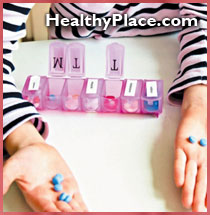"Codependence is an emotional and behavioral defense system which was adopted by our egos in order to meet our need to survive as a child. Because we had no tools for reprogramming our egos and healing our emotional wounds (culturally approved grieving, training and initiation rites, healthy role models, etc.), the effect is that as an adult we keep reacting to the programming of our childhood and do not get our needs met - our emotional, mental, Spiritual, or physical needs. Codependence allows us to survive physically but causes us to feel empty and dead inside. Codependence is a defense system that causes us to wound ourselves." * "We need to take the shame and judgment out of the process on a personal level. It is vitally important to stop listening and giving power to that critical place within us that tells us that we are bad and wrong and shameful.
That critical parent voice in our head is the disease lying to us. . . . This healing is a long gradual process - the goal is progress, not perfection. What we are learning about is unconditional Love. Unconditional Love means no judgment, no shame."
* "We need to start observing ourselves and stop judging ourselves. Any time we judge and shame ourselves, we are feeding back into the disease, we are jumping back into the squirrel cage."
Codependence: The Dance of Wounded Souls
Codependence is a dysfunctional defense system that was built in reaction to feeling unlovable and unworthy - because our parents were wounded codependents who didn't know how to love themselves. We grew up in environments that were emotionally dishonest, Spiritually hostile, and shame based. Our relationship with ourselves (and all the different parts of our self: emotions, gender, spirit, etc.) got twisted and distorted in order to survive in our particular dysfunctional environment.
We got to an age where we were supposed to be an adult and we started acting like we knew what we were doing. We went around pretending to be adult at the same time we were reacting to the programming that we got growing up. We tried to do everything right or rebelled and went against what we had been taught was right." Either way we weren't living our life through choice, we were living it in reaction.
In order to start being loving to ourselves we need to change our relationship with our self - and with all the wounded parts of our self. The way which I have found works the best in starting to love ourselves is through having internal boundaries.
continue story below
Learning to have internal boundaries is a dynamic process that involves three distinctly different, but intimately interconnected, spheres of work. The purpose of the work is to change our ego-programming - to change our relationship with ourselves by changing our emotional/behavioral defense system into something that works to open us up to receive love, instead of sabotaging ourselves because of our deep belief that we don't deserve love.
(I need to make the point here that Codependence and recovery are both multi-leveled, multi-dimensional phenomena. What we are trying to achieve is integration and balance on different levels. In regard to our relationship with ourselves this involves two major dimensions: the horizontal and the vertical. In this context the horizontal is about being human and relating to other humans and our environment. The vertical is Spiritual, about our relationship to a Higher Power, to the Universal Source. If we cannot conceive of a God/Goddess Force that loves us then it makes it virtually impossible to be loving to ourselves. So a Spiritual Awakening is absolutely vital to the process in my opinion. Changing our relationship with ourselves on the horizontal level is both a necessary element in, and possible because we are working on, integrating Spiritual Truth into our inner process.)
These three spheres are:
- Detachment
- Inner Child Healing
- Grieving
Because Codependence is a reactive phenomena it is vital to start being able to detach from our own process in order to have some choice in changing our reactions. We need to start observing our selves from the witness perspective instead of from the perspective of the judge.
We all observe ourselves - have a place of watching ourselves as if from outside, or perched somewhere inside, observing our own behavior. Because of our childhoods we learned to judge ourselves from that witness perspective, the critical parent voice.
The emotionally dishonest environments we were raised in taught us that it was not ok to feel our emotions, or that only certain emotions were ok. So we had to learn ways to control our emotions in order to survive. We adapted the same tools that were used on us - guilt, shame, and fear (and saw in the role modeling of our parents how they reacted to life from shame and fear.) This is where the critical parent gets born. It's purpose is to try to keep our emotions and behavior under some sort of control so that we can get our survival needs met.
So the first boundary that we need to start setting internally is with the wounded/dysfunctionally programmed part of our own mind. We need to start saying no to the inner voices that are shaming and judgmental. The disease comes from a black and white, right and wrong, perspective. It speaks in absolutes: "You always screw up!" "You will never be a success!" - these are lies. We don't always screw up. We may never be a success according to our parents or societies dysfunctional definition of success - but that is because our heart and soul do not resonate with those definitions, so that kind of success would be a betrayal of ourselves. We need to consciously change our definitions so that we can stop judging ourselves against someone else's screwed up value system.
We learned to relate to ourselves (and all the parts of our self emotions, sexuality, etc.) and life from a critical place of believing that something was wrong with us - and in fear that we would be punished if we didn't do life right. Whatever we are doing or not doing the disease can always find something to beat us up with. I have 10 things on my "to do list" today, I get 9 of them done, the disease does not want me to give myself credit for what I have done but instead beats me up for the one I didn't get done. Whenever life gets too good we get uncomfortable and the disease jumps right in with fear and shame messages. The critical parent voice keeps us from relaxing and enjoying life, and from loving our self.
We need to own that we have the power to choose where to focus our mind. We can consciously start viewing ourselves from the witness perspective. It is time to fire the judge - our critical parent and choose to replace that judge with our Higher Self - who is a loving parent. We can then intervene in our own process to protect ourselves from the perpetrator within - the critical parent/disease voice.
(It is almost impossible to go from critical parent to compassionate loving parent in one step - so the first step often is to try to observe ourselves from a neutral position or a scientific observer perspective.)
This is what enlightenment and consciousness raising are all about. Owning our power to be a co-creator of our lives by changing our relationship with ourselves. We can change the way we think. We can change the way we respond to our own emotions. We need to detach from our wounded self in order to allow our Spiritual Self to guide us. We are Unconditionally Loved. The Spirit does not speak to us from judgment and shame.
One of the visualizations that has helped me over the years is an image of a small control room in my brain. This control room is full of dials and gauges and lights and sirens. In this control room are a bunch of Keebler-like elves whose job it is to make sure that I don't get too emotional for my own good. Whenever I feel anything too strongly (including Joy, happiness, self-love) the lights start flashing and the sirens start wailing and the elves go crazy running around trying to get things under control. They start pushing some of the old survival buttons: feeling too happy - drink; feeling too sad- eat sugar; feeling scared - get laid; or whatever.
continue story below
To me, the process of recovery is about teaching those elves to chill out. Reprogramming my ego-defenses to knowing that it is ok to feel the feelings. That feeling and releasing the emotions is not only ok it is what will work best in allowing me to have my needs fulfilled.
We need to change our relationship with ourselves and our own emotions in order to stop being at war with ourselves. The first step to doing that is to detach from ourselves enough to start protecting ourselves from the perpetrator that lives within us.
next: Positive Affirmations


 There are two methods of treatment for sufferers of OCD. The first is the use of Drug Therapy. Mainly SRI's (Serotonin reuptake inhibitors) and SSRI's (SELECTIVE Serotonin reuptake inhibitors) are used to increase the levels of Serotonin - a chemical messenger in the Brain. The other is Cognitive Behavioral Therapy (CBT).
There are two methods of treatment for sufferers of OCD. The first is the use of Drug Therapy. Mainly SRI's (Serotonin reuptake inhibitors) and SSRI's (SELECTIVE Serotonin reuptake inhibitors) are used to increase the levels of Serotonin - a chemical messenger in the Brain. The other is Cognitive Behavioral Therapy (CBT).

